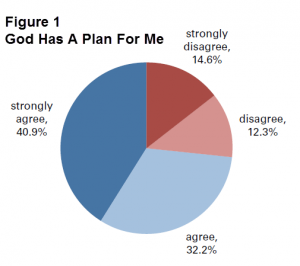 Baylor University recently released the findings of its latest Baylor Religion Survey, which is characterized as “one of the most extensive surveys ever conducted on the religious practices, attitudes, beliefs and values of the American public.” The 2011 survey is a follow-up to those released in 2006 and 2008 by Baylor’s Institute for Studies of Religion. (For more on the results of earlier surveys consider reading Rodney Stark’s What Americans Really Believe. My review is available here and some facts about American religious beliefs and practices from it are located here.)
Baylor University recently released the findings of its latest Baylor Religion Survey, which is characterized as “one of the most extensive surveys ever conducted on the religious practices, attitudes, beliefs and values of the American public.” The 2011 survey is a follow-up to those released in 2006 and 2008 by Baylor’s Institute for Studies of Religion. (For more on the results of earlier surveys consider reading Rodney Stark’s What Americans Really Believe. My review is available here and some facts about American religious beliefs and practices from it are located here.)
Among the findings (The Value and Beliefs of the American Public, Wave III Baylor Religion Survey can be read in full – 68 pages – online here) are
- Most Americans (73.2%) believe that God has a plan for them. Those who feel strongly that God has something wonderful in store for them tend to have lower incomes and less education (p.2-5).
- Heaven is a more popular notion than Hell. Nearly two-thirds of American adults (62%) absolutely believe that Heaven exists, whereas barely half (51%) express the same certainty about the existence of Hell (p.26).
- Those who believe in a very engaged God who is involved in the world and in people’s lives fared better insofar as mental health matters included in the survey when compared to those who believe in a very judgmental God who is critical, punishing, and angered by sin (p.14-15).
So What?
Have you ever considered that one’s view of God may be correlated to measures of mental health? The data in the third bullet point above builds on Paul Froese and Christopher Bader’s America’s Four Gods: What We Say About God – & What That Says About Us (read my review here and some additional related information here) using data from the third wave of the Baylor survey. More specifically, it finds that respondents who believe in a very engaged God have:
- 21% fewer concerns related to generalized anxiety
- 34% fewer concerns related to social anxiety
- 25% fewer concerns related to paranoia
- 18% fewer concerns related to obsessions
- 17% fewer concerns related to compulsions (p.14).